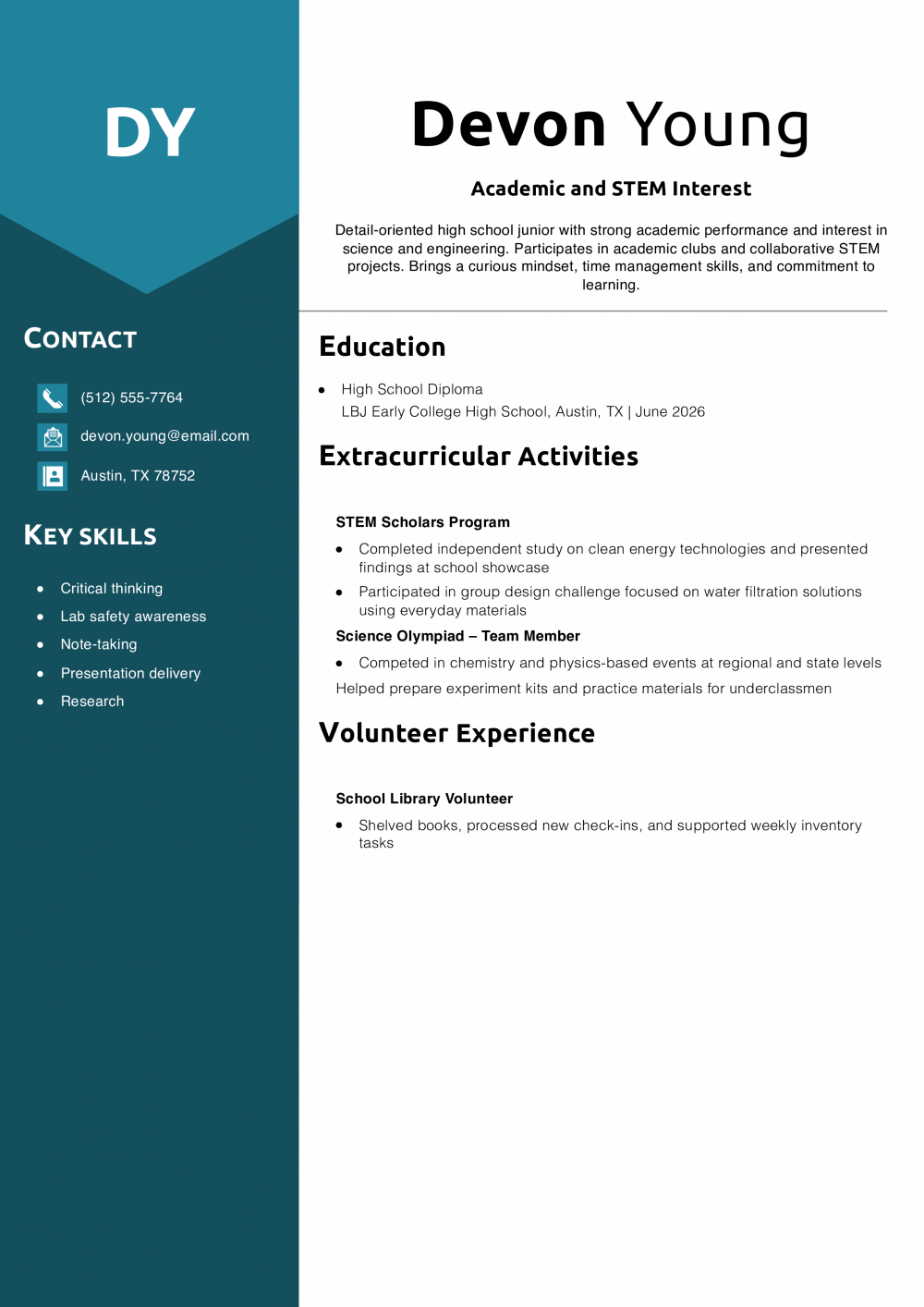In today’s competitive job market, the right mix of skills on your resume can determine whether you land your next role. Qualities like communication and teamwork are critical. Yet specific abilities that can be measured and demonstrated through training or experience showcase the qualifications employers value most. Understanding the best hard skills to include on a resume and how to present them is essential for standing out.
What Are Hard Skills?
Hard skills are abilities that can be quantified or taught through formal education or practical experience are known as hard skills. These encompass technical knowledge, hands-on expertise, or specific competencies required for certain professions. Mastering a programming language, managing financial reports, or operating machinery all fall under this category.
Unlike interpersonal skills, which are subjective and harder to quantify, these abilities offer concrete evidence of what you bring to a role. A candidate who lists Python programming or advanced Excel proficiency is immediately signaling technical proficiency and a practical foundation for job-specific tasks.
In today’s professional landscape, possessing these specific abilities is vital for succeeding in a job. Employers use these competencies to evaluate whether someone is qualified to meet the role’s technical demands. From online tests to certifications, potential employers are looking to assess your proficiency accurately and efficiently.
Many hiring processes begin with software designed to filter candidates based on keywords associated with these competencies. Ensuring your resume includes these critical elements can make the difference between getting noticed or overlooked by automated tracking systems.
Why Include Hard Skills on Your Resume?
Providing concrete evidence of your expertise is one of the clearest ways to show you are fit for a role. When you include specific technical abilities or knowledge that align with job requirements, it tells the hiring manager you have the capability to handle the tasks involved. Listing skills relevant to the position increases the likelihood of moving forward in the hiring process.
For example, in a data analyst role, listing SQL proficiency or experience with data visualization tools immediately displays your technical competence in managing and analyzing large datasets.
Many organizations rely on applicant tracking systems (ATS) to screen resumes before they reach human eyes. These systems scan documents for keywords associated with job requirements, which often emphasize relevant abilities and expertise. Including appropriate keywords not only helps you pass this initial screening but also increases your chances of making it to the next phase.
Carefully reviewing the job description for specific keywords and incorporating them ensures your resume is tailored to match the role, improving your odds of passing the ATS.
In highly competitive fields, such as health care, tech, and finance, differentiating yourself is essential. Applicants who emphasize the right technical skills — especially those that are rare or specialized — are more likely to be noticed. Detailing specialized capabilities gives employers confidence that you have the tools to succeed in the role.
In project management, for instance, listing expertise in Agile methodology or direct experience leading large-scale initiatives can make you stand out among candidates applying for leadership positions.
Examples of Hard Skills To Include on Your Resume
- Technical skills: Roles in fields like information technology (IT), engineering, and software development often require proficiency in various tools and technologies. Whether it’s coding in Java, developing websites, or understanding network security protocols, showing that you can meet the technical demands of the job is crucial. Creating a list of technologies or software you’re proficient in demonstrates your ability to adapt and excel in complex technical environments.
- Analytical skills: The ability to analyze data, draw insights, and make informed decisions is valuable in industries such as finance, consulting, and research. Conveying your expertise in data analysis, market research, or statistical modeling shows employers that you have a sharp, detail-oriented mind capable of tackling complex problems. For finance roles, displaying skills in financial analysis or modeling provides evidence that you can effectively manage budgets or assess investment opportunities.
- Industry-specific skills: Certain fields demand specialized expertise that is crucial to their operations. In healthcare, knowing how to manage electronic medical records (EMR) or administer patient care are vital abilities. Meanwhile, in finance, the ability to prepare tax returns or develop complex financial models is necessary. For marketing, expertise in search engine optimization (SEO) or social media strategy can significantly boost your appeal to employers. Tailoring your resume to include hard skills for specific industries demonstrates both your experience and adaptability within your field.
- Language skills: Being fluent in multiple languages is highly beneficial in today’s interconnected global economy. Whether you’re fluent in Spanish, Mandarin, or French, language skills are indispensable in industries with international clients or multicultural teams. Demonstrating language fluency not only makes you a versatile communicator but also opens opportunities to work with global organizations.
- Project management skills: Leading projects requires specific abilities, including familiarity with various methodologies and the capacity to coordinate teams, schedules, and resources. Employers look for candidates who can manage the scope of a project and drive successful outcomes. Showing experience with Agile, Scrum, or other project management techniques can set you apart for leadership or team-based roles.
- Certifications and software proficiency: Earning certifications proves you’ve attained a recognized level of expertise in a given area. Examples might include Salesforce for customer relationship management, Microsoft Office for business operations, or Adobe Creative Cloud for design. Listing relevant certifications shows employers that you have validated, up-to-date skills that align with industry standards.
How To Identify Your Hard Skills
Job descriptions are an excellent source for identifying the hard skills in demand for the role you’re targeting. These listings often display the specific competencies employers are seeking. By analyzing several job postings, you can pinpoint the technical requirements and align your resume with the expectations for that position.
For example, a job listing for a software developer might emphasize proficiency in Python, web development frameworks, or cloud computing. You can use this as a guide to shape your resume around those necessary skills and experience.
Performing a self-assessment is a practical way to identify your hard skills. Many online tools and platforms can assist in identifying your strongest abilities and pinpointing areas for improvement. A skills inventory provides an organized way to map out your capabilities and how they align with job opportunities.
This exercise helps ensure that your resume accurately reflects your strengths, especially in competitive fields where specialized knowledge can make a big difference.
Feedback from supervisors or colleagues can offer valuable insights into your key skills. Performance reviews often distinguish specific areas where you’ve excelled, helping to identify strengths you may not have fully recognized. Using this feedback will help your resume reflect your most relevant abilities and accomplishments.
How To Include Hard Skills on Your Resume
Creating a dedicated skills section on your resume allows employers to easily spot your technical proficiencies. Organize this section by grouping related abilities, listing the most relevant or impressive skills first. Avoid overwhelming the reader with too many entries; focus on those most critical to the role.
| Marketing skills | Retail skills |
|---|---|
| Brand development | Business intelligence tools |
| Competitive analysis | Customer feedback analysis |
| Graphic design | Customer journey mapping |
| Email campaigns | Data analysis |
| Market analysis | Market forecasting |
| Pay-per-click advertising | Point-of-sale (POS) software |
| SEO strategy | Product sourcing |
| Social media proficiency | Sales |
| Writing | Social media management |
Instead of only listing skills separately, incorporate them into your job descriptions. This approach provides context and shows how you’ve applied these abilities in real-world scenarios. Use bullet points to outline key achievements, demonstrating how your technical expertise contributed to the success of a project or task.
For example, you might say, “Developed and deployed a data analytics platform, improving reporting efficiency by 30%,” demonstrating both the skill and its impact.
Including critical skills in your professional summary is a powerful way to capture attention quickly. This short section should communicate not only your experience but also the core skills that make you a strong candidate for the job.
For instance, a summary might read, “Experienced project manager with expertise in Agile methodologies and data-driven decision-making,” which immediately positions you as someone with both leadership and technical expertise.
Tips for Effectively Showcasing Hard Skills
- Use action verbs and quantifiable results: Using strong action verbs paired with quantifiable achievements makes your resume more compelling. For example, instead of just listing “data analysis,” describe how you “analyzed customer data, increasing sales conversions by 15%.”
- Tailor hard skills to the job description: Each job has unique requirements, and tailoring your resume to communicate the most relevant abilities is key to standing out. Before submitting an application, carefully review the job description and ensure that your skills align with the needs of the role.
- Keep skills current and relevant: Industries evolve, and it’s essential to stay up-to-date with the latest trends and tools in your field. Consistently updating your resume sections with certifications, new skills, or relevant training will demonstrate your commitment to professional growth and keep your resume competitive.
- Use keywords effectively: Incorporating the right keywords from the job description increases your chances of passing ATS filters. Use exact phrasing found in the job posting to enhance your resume’s visibility.
- Proofread and review: Accuracy matters. Proofread your resume to ensure there are no errors, and review your skills section for clarity and consistency.
- Seek feedback: Before submitting your resume, ask for feedback from colleagues or mentors. An outside perspective can help identify any gaps or opportunities to strengthen the presentation of your skills.
Common Mistakes To Avoid When Listing Hard Skills
- Listing too many skills: It can be tempting to include every ability you’ve acquired, but less is more. Focus on listing only the most relevant skills to the job at hand rather than providing a laundry list that may dilute your qualifications.
- Including outdated or irrelevant skills: Avoid cluttering your resume with skills that are no longer relevant to your field or the position. Stay focused on what matters to today’s employers, updating your list with current industry standards.
- Failing to provide evidence of skills: Merely listing skills without providing context or examples doesn’t prove your expertise. Be sure to back up your skills with specific examples, achievements, or measurable results that demonstrate their application.
Additional Resources
Links to resume templates with skills sections
- Skills-based resume templates
- How to list skills in your resume
- Key skills examples for your resume
- Morehouse Career Development & Engagement: 5 Hard Skills Your Resume Needs
- University of Georgia: Listing Hard and Soft Skills on a Resume
- Social Security Administration: What Are Technical Skills?
Frequently Asked Questions About Hards Skills on the Resume
List hard skills in a dedicated "Skills" section using bullet points or categories tailored to the job you're applying for. Be specific with tools and technologies, and indicate proficiency levels where possible. You can also integrate skills into your experience section to show their practical application.
A good example of a hard skill for a resume is "Data analysis using SQL and Python." This is specific and technical, demonstrating proficiency in tools widely used in various industries. It shows that you have measurable, job-relevant expertise.
Hard skills are measurable, job-specific abilities gained through education or experience, such as data analysis or accounting. Technical skills are a subset of hard skills focused on technology-related abilities like coding or software proficiency. All technical skills are hard skills, but not all hard skills are technical.
Resume Templates offers HR approved resume templates to help you create a professional resume in minutes. Choose from several template options and even pre-populate a resume from your profile.


